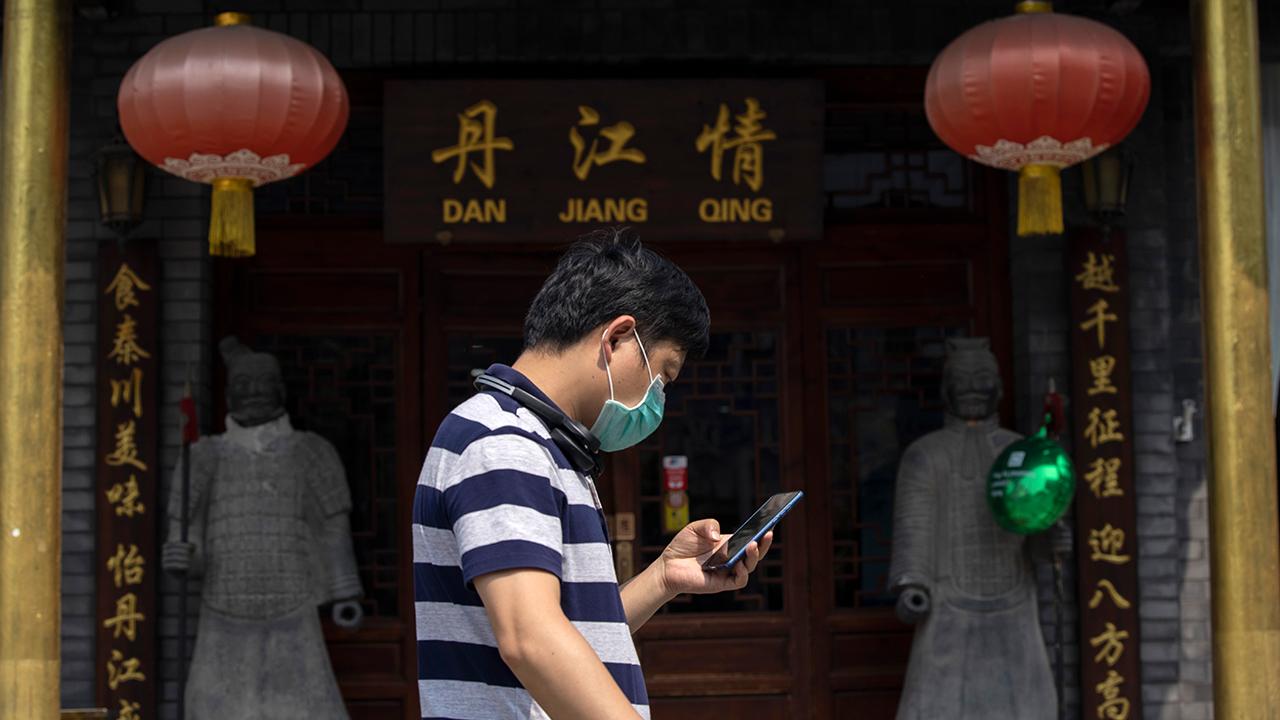Trump attempt to wield Hong Kong dollar against China would backfire: Economists
'The unintended consequences could be serious'
Attempts to end the Hong Kong dollar’s longstanding peg to the U.S. greenback would likely backfire and do more harm than good, according to economists.
The idea has been floated by some advisers to President Trump, according to a Bloomberg report, citing people familiar with the matter, as a way to punish Beijing for passing a Hong Kong national security law that circumvented the “One Country, Two Systems” governing principle agreed to as part of the territory's 1998 handover by Great Britain.
“The unintended consequences could be serious and I don't think that it necessarily would be that effective,” Marc Chandler, chief market strategist at the capital markets trading firm Bannockburn Global Forex, told FOX Business.
KEY STOCK INVESTORS SKEPTICAL DEMS CAN SWEEP ELECTION: GOLDMAN SACHS
The Hong Kong Monetary Authority, established in 1983, said the Hong Kong dollar would trade in a band between 7.75 and 7.85 per U.S. dollar. The de facto central bank buys or sells the currency to defend either end of the trading range, which has survived many attempts to break it over the years.
Most recently, the currency came under pressure during the 1997 Asian Financial Crisis when several currencies, including the Thai baht and Malaysian ringgit, were devalued.
The Hong Kong dollar has remained "fairly strong" for two reasons, according to Chandler. One is that the Hong Kong Monetary Authority maintains slightly higher interest rates than the U.S.; another is that investors from mainland China and elsewhere have been snapping up shares of companies listed on Hong Kong's local exchange, driving up the value of the currency.
The de facto central bank has spent $13.5 billion this year in an effort to curtail the Hong Kong dollar’s strength after buying $1.7 billion worth of U.S. currency -- selling 13.4 billion Hong Kong dollars -- on Thursday, according to Bloomberg.
Just as in the past, any attempt to break the band would prove difficult.
The Hong Kong Monetary Authority is “hoarding” twice as many foreign reserves as its so-called M1 money supply, or cash plus demand deposits, said Sri Kumar, president of the Santa Monica-based Sri Kumar Global Strategies.
EXPIRING CORONAVIRUS JOBLESS BENEFITS POSE RISK TO RECOVERY
Therefore, even if speculators used the entire money supply to buy U.S. dollars, driving the Hong Kong dollar to the top of the band or weakest point, the authority would have “enough reserves to intervene and support the currency,” he said.
Another $3.1 trillion is parked at the People’s Bank of China, which an increasingly controlling Beijing could use to help Hong Kong in the event of an attack on its currency from the U.S. or Europe, Kumar said. Hong Kong could then pay back the Chinese central bank once the threat was extinguished.
A second move the administration could make to try and break the band would be to limit the access of Hong Kong banks to the U.S. dollar, effectively banning U.S. banks from trading with them.
Doing so would “put pressure on Hong Kong” and impact share prices, but would be very different from a collapse of the peg, Kumar said.
If markets believed U.S. efforts to harm the peg might succeed, it would be "very negative for global markets" because Hong Kong is a major financial center, according to Kumar.
"If you are going to affect the currency in such a place, it is going to have an impact on U.S. equities, European equities and the Treasury yield," he said. "And Europe would have to think about whether it is worthwhile suffering the adverse consequences in the U.S. in order to hurt the Hong Kong authorities."
Alan Ruskin, global head of G10 currency strategy at Deutsche Bank, believes it’s “far from obvious” that destabilizing the peg would be in the U.S.’s interest.
A U.S. dollar peg is Ruskin’s preference, but if that were to go, a few options would be on the table, including a Chinese yuan peg or a floating exchange rate, which he believes would be disruptive to Hong Kong’s economy.
CLICK HERE TO READ MORE ON FOX BUSINESS
“If you're going to shift in Hong Kong from a dollar-based peg, there's an argument to be said that the Hong Kong dollar at some point just pegs itself against the Chinese yuan as an interim step before the two meld together in essence,” Ruskin said. “But that depends on Hong Kong and China’s political decisions.”
